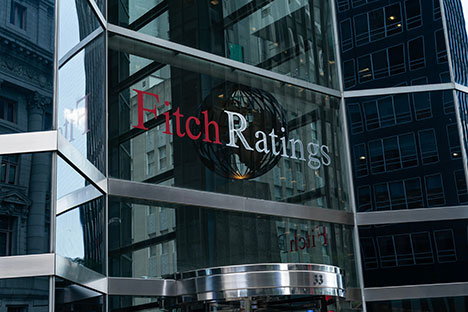A stock market that shrugged off a shutdown of the global economy in 2020 had a muted reaction to the news that Fitch, one of the three major ratings agencies, downgraded the U.S. government debt rating from AAA to AA+.
It reminds me of old-time movies when cops would show up at a criminal’s hideout and the crook would say, “What took you so long?” I was wondering the same thing about the downgrade.
Unrestricted spending by both the Trump and Biden administrations – combined with another furious debt ceiling fight that makes the barroom brawl scene from A Bronx Tale look like a church meeting – led to Fitch’s downgrade.
Another key reason for the downgrade was an “erosion of governance.” According to Fitch, “There has been a steady deterioration in standards of governance over the last 20 years, including on fiscal and debt matters…” In other words, our leaders have been acting like fools and someone finally called them out on it. And Fitch isn’t the only ratings agency to downgrade U.S. debt. Standard & Poor’s (now called S&P Global Ratings) did the unthinkable when it first downgraded the United States from AAA to AA+ back in 2011 after a nasty battle over the debt ceiling. S&P’s current rating of the U.S. remains AA+.
Moody’s, the third ratings agency, still has an Aaa rating on U.S. debt.
Fitch’s downgrade could make our debt more expensive. Typically, the lower the rating, the higher the interest rate the issuer has to pay.
And in the four trading days since the downgrade, the yield on the 10-year Treasury has gone up about 40 basis points. (A basis point is one-hundredth of a percentage point.) That being said, other factors – such as Federal Reserve action, the economy and the market – will have a much larger effect on interest rates than Fitch’s downgrade.
How Does It Affect You?
If you invest in Treasurys, the yields could be a bit higher, making them even more attractive. But the big question on everyone’s mind is this: Does the downgrade make U.S. Treasurys less safe?
An AA+ rating is still extremely safe. If I were invested in a corporate bond with an AA+ rating, I would feel 100% confident that the bond would be paid back at maturity. For example, Apple (Nasdaq: AAPL) is rated AA+. I doubt there is one person on the planet concerned that Apple won’t pay its debt at maturity.
Furthermore, if the U.S. defaulted on its Treasurys, we’d probably have more to worry about than getting our money back. It would probably mean the government had fallen and the country and world were in complete chaos.
Despite our problems, the U.S. is not Argentina… at least not yet.
When S&P downgraded the U.S. in August 2011, the market fell 7% the next trading day. It rose 12.3% from that point through the end of 2011. Then, the massive bull market continued until it was derailed by the pandemic in 2020. So while the downgrade certainly isn’t positive, in the only other occurrence, it didn’t hurt investors at all.
If anything, perhaps Fitch’s recent downgrade will be a wake-up call to voters who will finally toss out the clowns who have been running things and vote for people who are more committed to fixing problems than staying in power and getting rich while doing so.
Good investing,
Marc
P.S. What do you think about the United States’ debt problem? Leave your thoughts in the comments section below.
